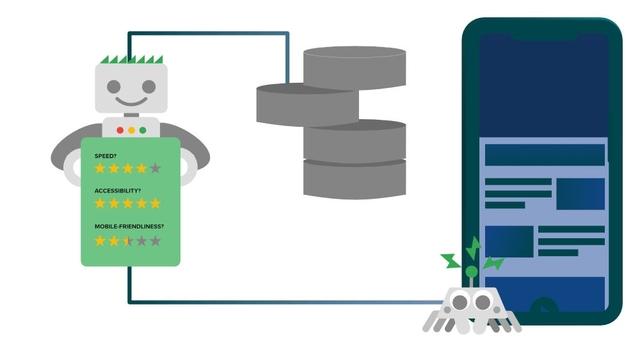
Google Kills Desktop: Improve Your Mobile Friendly Website Design Now
Google's algorithm won't use Googlebot Desktop to index web pages after July 5th, 2024. This announcement comes eight months after mobile-first indexing was marked as complete and eight years after the first mention of mobile-first indexing in 2016.
Following the 2016 announcement, Google’s algorithm has given websites with good mobile performance a boost in search results. JTech’s web design and SEO experts have covered the mobile-first changes in articles like:
- Google to Lower Rank of Sites That Are "Mobile-Unfriendly"
- Prepare Your Website for Google’s Mobile First Index
Before now, sites that didn’t work on mobile devices could try to get indexed by Googlebot’s desktop version. In other words, all hope for them was not lost yet. Now? That security is gone.
Before exploring the impact of this change, we need to add a little context about what indexing is and how it affects search.
Indexing and SEO: The Essential Points to Know
Getting your website indexed by Googlebot is the first step toward ranking in search. Indexing is a four-step process, specifically:
- Googlebot finds your web pages via your sitemap or by following a link from another site
- Googlebot downloads the webpage it lands on and renders it — like a browser would
- Googlebot assigns a topic and quality score to that page and files it away in Google’s servers
- Googlebot follows any links that were in the content of that webpage to index new pages
That’s it. You can think of indexing as an aptitude test like the ACT, SAT, or the bar. Like these tests, websites must take the 'indexing test' to rank in search. Their score sets the baseline for your SEO performance.
The bottom line? Your website will never rank if Googlebot doesn’t see it because, to Google, it doesn’t exist.
What Does The Death of Googlebot Desktop Mean for Your Business?
We need to look at steps two and three of the indexing process to understand why this update will affect your business.
GOOGLEBOT DOWNLOADS AND RENDERS YOUR WEBPAGE
Most websites are responsive and adapt to mobile screens. That means Googlebot can technically index them. However, rendering your website in a mobile view isn’t that simple. Poorly optimized websites can break and prevent Googlebot from seeing important data.
In extreme cases, Googlebot Mobile won’t be able to render your website at all. That means Google will never index your website, and any visibility you have now will vanish. If you have a website designed by JTech, you can rest easy knowing that this will not apply to you.
Main Takeaway: If your website doesn’t work on mobile, you won’t appear in search.
GOOGLEBOT ASSIGNS YOUR PAGE A TOPIC AND QUALITY SCORE

Mobile performance is all that matters for your quality score after this update. If your website's mobile core web vitals are poor, it won’t appear in Google search.
Main Takeaway: Mobile web vitals are now the only performance metrics that matter for your page’s quality score.
Wrapping Up: The Next Steps for Your Website & SEO
Google claims that this update will only affect a few websites. This sounds comforting until we remember how large the web is. According to Forbes, there are ~1.09 billion websites recorded on the internet.
‘A few’ websites out of 1.09 billion is still a massive number. So, this update could easily affect your business. This is especially true if you’re using an older template website or you haven’t cleaned out the plugins you’ve installed in a long time. To safeguard yourself, make sure that your website works on mobile before you do anything else to avoid wasting time and money. Afterward, assess your mobile Core Web Vitals to make sure your changes were effective.
In many cases, fixing or optimizing your website means getting help from a professional web design team like JTech's. If you run into a roadblock that you can’t overcome, We would be happy to help. Our team is always excited to help a client beat Google at its own game.
MOBILE INDEXING REFERENCES
- Top Website Statistics For 2024 — Forbes
- Mobile-indexing-vLast-final-final.doc — Google Search Central
- Googlebot — Search Central Documentation
- In-depth guide to how Google Search works — Search Central Documentation
- Google’s Crawling Priorities: Insights From Analyst Gary Illyes — Search Engine Journal
- Google’s Indexing Process: When Is “Quality” Determined? — Search Engine Journal
- Mobile-first indexing has landed - thanks for all your support — Google Search Central
- Mobile-first indexing — Google Search Central
